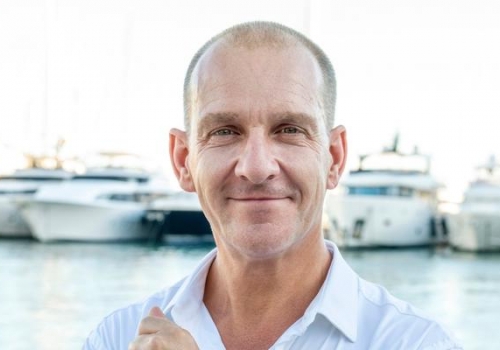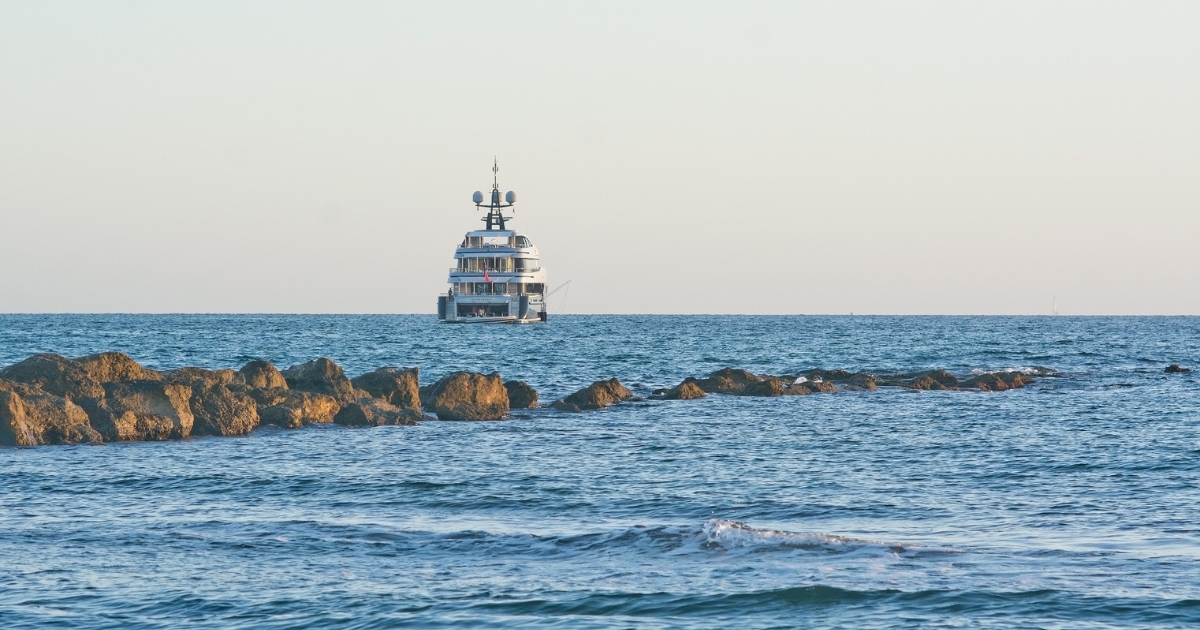License to Sail: Net Zero and the Risks for Yachting

“If your yacht doesn’t participate in the Yacht Zero project, it’ll be heading towards stranded asset status.”
That’s the stirring message from superyacht captain turned tech entrepreneur and environmental activist Nigel Marrison. He warned that if superyacht owners fail to start taking responsibility for their yacht’s emissions and environmental impact, they’ll soon face the very real prospect of losing access to finance and insurance for their yachts and losing their license to operate at all.
The yachting industry is living on borrowed time
Captain Marrison is the founder of Blue ESG, a groundbreaking yacht-specific ESG reporting tool.
Blue ESG adopts a framework based on corporate ESG practices, with a methodology specifically designed for superyachts. It is extremely cutting-edge and even includes an opportunity for yachts to align their decarbonisation efforts with IMO ‘Net Zero’ standards and expectations. This includes compliance with the IMO’s Ship Energy Efficiency Management Plan (known as SEEMP Part III) and Carbon Intensity Indicator (CII) regulations which came into effect for merchant ships as of January 2023.
According to Captain Marrison, the yachting industry is facing an existential threat due to a combination of climate change versus the own industry’s lack of action in that regard, and major negative shifts in societal acceptance of the industry.
He emphasised that the industry’s next move will be key to whether it survives or dies. “Do we just wait for the inevitable regulations that are no doubt coming? Or do we take a proactive approach?” he asked. “Regulation adherence is currently not mandatory for yachts, but there’s no doubt that we’re being too slow; We can’t just leave it up to the regulators. The yachting industry has to see this as a call to action to be accountable and responsible and to do our part for the environment and for ourselves because, without this, the industry faces a real threat to its very existence.”
Net Zero and the evolving regulatory environment
While the yachting industry is largely taking a wait-and-see approach to emissions regulations, the banking and insurance sectors are moving quickly with ambitious, strict net zero rules, and yacht owners will soon begin to feel the bite of the requirements that will follow from the net zero programs in those sectors. And the dire consequences of not complying.

One of the most notable programs is the EU’s Emissions Trading System (EU ETS). EU ETS is one of the EU’s key policies to combat climate change and reduce greenhouse gas emissions. EU ETS includes various stipulations that will improve, monitor and report on emissions targets, and will penalise heavy emitters. “Adopting project ‘Yacht Zero’ will mitigate exposure to carbon taxes and emissions penalties,” said Captain Marrison.
The second big initiative is the United Nations Net-Zero Banking Alliance (NZBA). NZBA is an ‘industry-led, UN-convened’ group aiming to ‘accelerate… the implementation of decarbonisation strategies’. It brings together 125 banks in 41 countries, ‘representing over 40% of global banking assets’ and which ‘are committed to aligning their lending and investment portfolios with net-zero emissions by 2050’.
However, NZBA has also set ‘intermediate targets for 2030 or sooner’, further stressing the urgency with which emissions must be addressed within yachting.
The insurance industry is taking similar measures. Poseidon Principles, an alliance of marine insurers, is on the same track according to Captain Marrison. “Poseidon Principles also has a Net Zero 2050 target for their insurance portfolios. That means that when you want to insure your asset, you’ll need to be able to prove that it aligns with Net Zero 2050. And if not, how are you going to insure it without that?”
“Together with the banking sector’s Net Zero 2050, yacht owners may find themselves in real trouble,” he continued. “You may own a yacht and want to either buy a new one, refinance it or refit it. How do you then access a financial product on an asset that doesn’t have a Net Zero 2050 strategy?”
The effects of this are already being felt in the merchant shipping fleet, he added. “The CII or Carbon Intensity Index in shipping has already proven that it affects the value of the vessel, and compliant ships are already experiencing the benefits of it and vice versa.”

Act now or be a bystander to your yacht’s devaluation
Captain Marrison emphasised that if the industry doesn’t immediately adopt a proactive approach to - at the very least - aligning its decarbonisation to IMO net zero standards and expectations, then superyachts risk being deemed to have stranded asset status. “A stranded asset is one that previously had value but, due to external factors such as societal or climate factors, no longer has a license to operate,” he said. “In a world that’s focused on Net Zero 2050 as a minimum, stranded asset status is a very real risk for a superyacht. If a yacht doesn’t take any action between now and 2050, it will undoubtedly become a stranded asset and have no value.”
In addition to climate pressure from financial institutions, superyachts are facing increasing scrutiny from both society and the media, who are increasingly questioning the purpose of superyachts, with some being larger than boutique cruise vessels. This further adds to the risk faced by the superyacht industry. “An asset can also become a stranded asset due to societal pressure,” he warned. “Private aviation and yachts have been a particular target of this, with societies around the world saying that these things simply no longer have a purpose on the planet. Society and the media are asking, ‘What is this gargantuan mass of steel for? What purpose do they serve?’”
The answer to these risks is Yacht Zero. Developed by Captain Marrison via Blue ESG, in collaboration with Lloyd’s Register, Yacht Zero seeks to help yachts maintain their license to operate by adopting a credible decarbonisation tool and strategy that will satisfy regulators and financial and insurance institutions. It has the chance to illustrate to society that the industry acknowledges the problem and that it is taking bold and measurable steps to immediately and effectively reduce its emissions.
Yachts that work with Yacht Zero can look forward to a secure valuation, getting ahead of incoming, cascading emissions and sustainability regulations, and they can boost their own operational performance and efficiency, all while maintaining their license to operate and thus avoiding becoming a stranded asset.
Make the world a better place
Superyacht owners who are ready to ensure that their own yacht is making the world a better place are invited to contact Captain Marrison directly or via the Blue ESG website for a personalised consultation.


Post your comment
You cannot post comments until you have logged in.
Login to post a commentComments
No one has commented on this page yet.
RSS feed for comments on this page | RSS feed for all comments